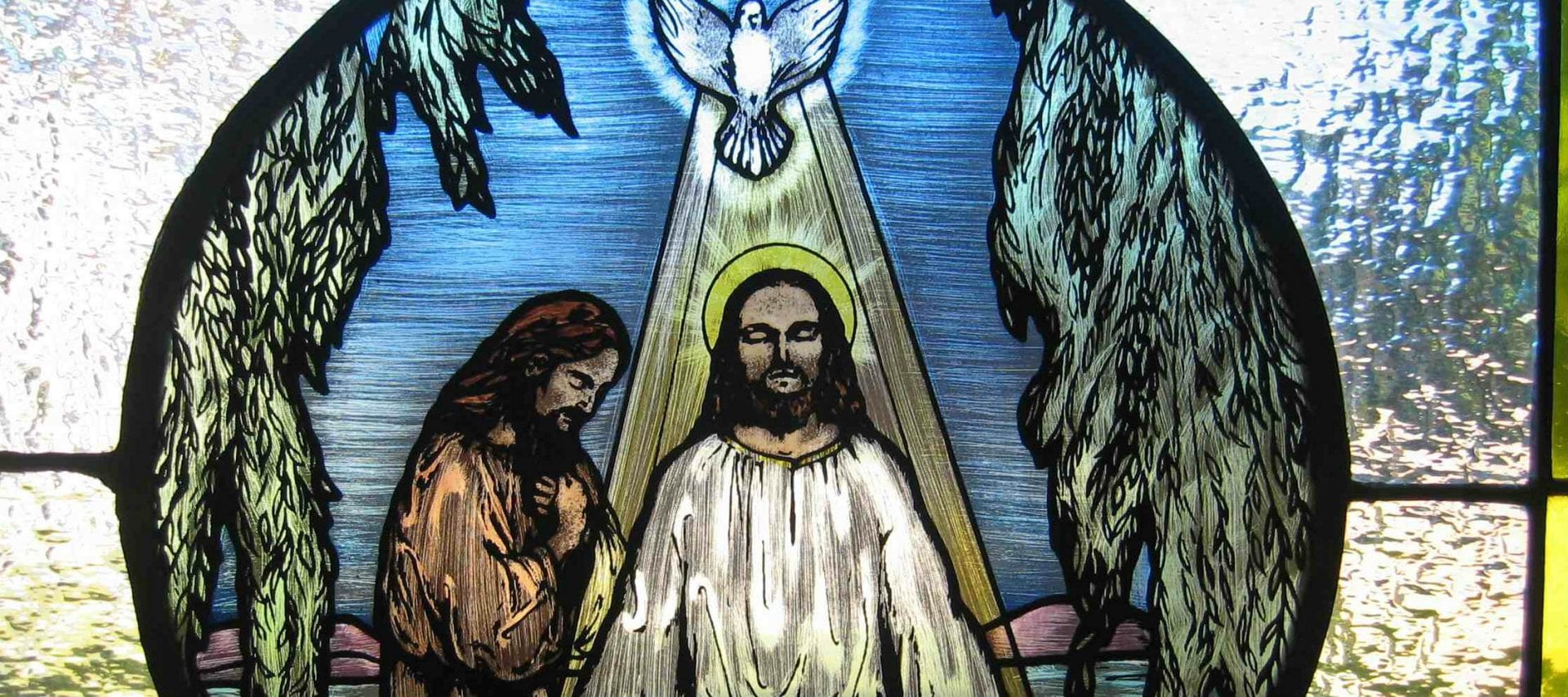Regina Caeli – Queen of Heaven, Rejoice!
The Regina Caeli, Latin for “Queen of Heaven,” is a hymn and prayer ...

Peter Chrysologus, a 5th century Church Father, on the priesthood of all Christian believers conferred in baptism and confirmation. He elaborates his teaching in the course of commenting on the apostle Paul’s words in Romans 12:1 where we are called to offer our bodies as a living sacrifice.
Iappeal to you by the mercy of God. This appeal is made by Paul, or rather, it is made by God through Paul, because of God’s desire to be loved rather than feared, to be a father rather than a Lord. God appeals to us in his mercy to avoid having to punish us in his severity.
Listen to the Lord’s appeal: “In me, I want you to see your own body, your members, your heart, your bones, your blood. You may fear what is divine, but why not love what is human? You may run away from me as the Lord, but why not run to me as your father? Perhaps you are filled with shame for causing my bitter passion.
Do not be afraid. This cross inflicts a mortal injury, not on me, but on death. These nails no longer pain me, but only deepen your love for me. I do not cry out because of these wounds, but through them I draw you into my heart. My body was stretched on the cross as a symbol, not of how much I suffered, but of my all-embracing love.
I count it no less to shed my blood: it is the price I have paid for your ransom. Come, then, return to me and learn to know me as your father, who repays good for evil, love for injury, and boundless charity for piercing wounds.”
Listen now to what the Apostle urges us to do. I appeal to you, he says, to present your bodies as a living sacrifice [Romans 12:1].
By this exhortation of his, Paul has raised all men to priestly status.
How marvelous is the priesthood of the Christian, for he is both the victim that is offered on his own behalf, and the priest who makes the offering. He does not need to go beyond himself to seek what he is to immolate to God: with himself and in himself he brings the sacrifice he is to offer God for himself. The victim remains and the priest remains, always one and the same. Immolated, the victim still lives: the priest who immolates cannot kill. Truly it is an amazing sacrifice in which a body is offered without being slain and blood is offered without being shed.
The Apostle says: I appeal to you by the mercy of God to present your bodies as a living sacrifice. Brethren, this sacrifice follows the pattern of Christ’s sacrifice by which he gave his body as a living immolation for the life of the world. He really made his body a living sacrifice, because, though slain, he continues to live. In such a victim death receives its ransom, but the victim remains alive. Death itself suffers the punishment. This is why death for the martyrs is actually a birth, and their end a beginning. Their execution is the door to life, and those who were thought to have been blotted out from the earth shine brilliantly in heaven.
Paul says: I appeal to you by the mercy of God to present your bodies as a sacrifice, living and holy. The prophet said the same thing: Sacrifice and offering you did not desire, but you have prepared a body for me.
Each of us is called to be both a sacrifice to God and his priest. Do not forfeit what divine authority confers on you. Put on the garment of holiness, gird yourself with the belt of chastity. Let Christ be your helmet, let the cross on your forehead be your unfailing protection. Your breastplate should be the knowledge of God that he himself has given you. Keep burning continually the sweet smelling incense of prayer. Take up the sword of the Spirit. Let your heart be an altar. Then, with full confidence in God, present your body for sacrifice.
God desires not death, but faith; God thirsts not for blood, but for self-surrender; God is appeased not by slaughter, but by the offering of your free will.
For teaching by Peter Chrysologus’ contemporary, Pope St. Leo the Great, on the priesthood of baptized, click here.
This post focuses on the Christian priesthood conferred upon all believers through baptism and confirmation. Through these sacraments, all are given a share in the Lord’s anointing as priest, prophet, and king. This reading appears in the Roman office of Readings for Tuesday of the 4th week of Easter. It is an excerpt from a sermon of St. Peter Chrysologus (Sermon 108, PL 52, 499-500). In it, St. Peter Chysologus comments on Romans 12:1.
One of the great debates among Christians of the 16th century revolved about the concept of priesthood. Though the Protestant Reformers disagreed among themselves on many things, they all rejected the idea that ordained ministers were in any special way “priests.” They instead championed the doctrine that all believers are priests. But there is no essential opposition between the two ideas: the Early Church Fathers extolled the priesthood of all believers, conferred especially in the sacrament of confirmation. But they also called bishops and their “presbyter” helpers “priests” in a very special way since they and they alone presided over the Eucharist, understood as the sacrifice of the New Covenant.
No Comments